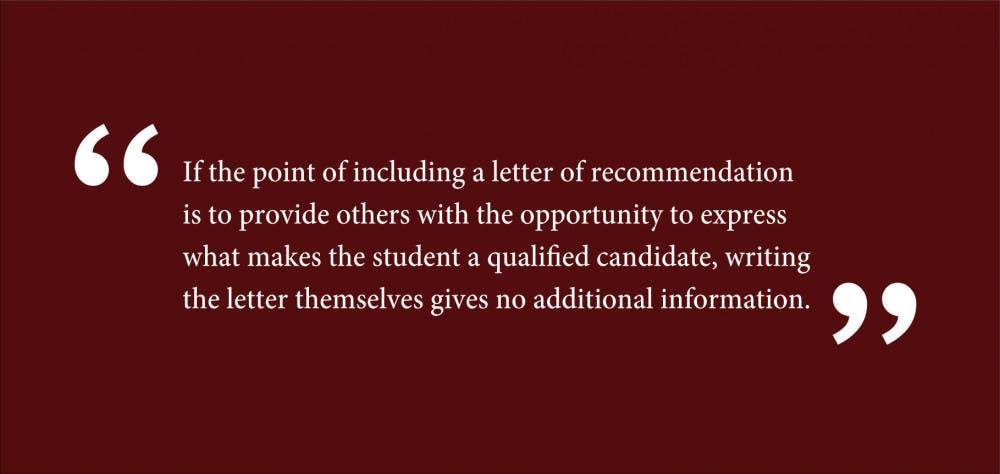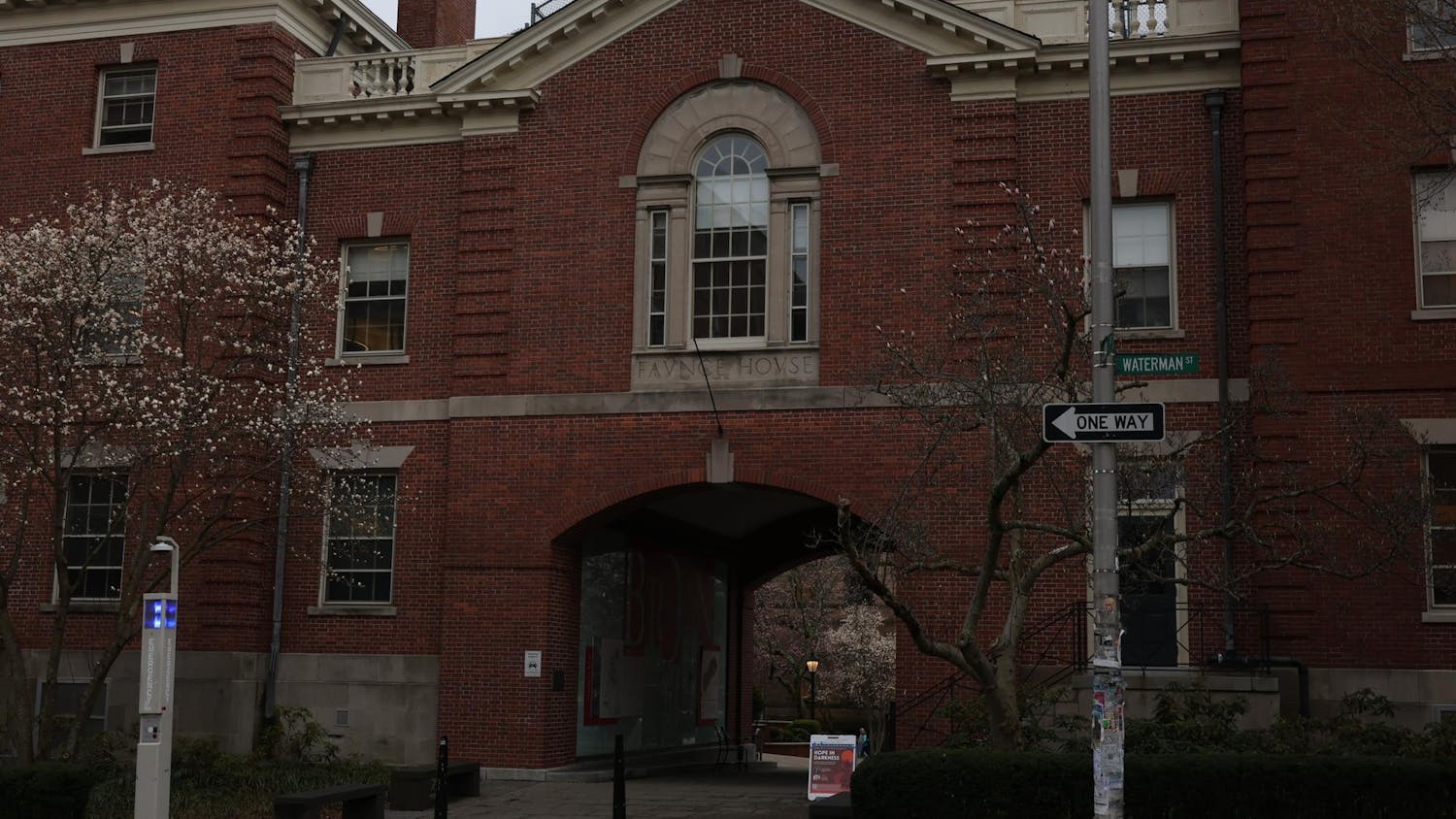One of the most stressful parts of the University experience isn’t taking midterms or writing final papers: it’s applying to jobs, internships and graduate school. Often, employers and schools ask students to provide numerous recommendation letters supporting their applications. The process of obtaining these letters is time-consuming, anxiety-inducing and can sometimes prevent students from applying. Worse still, these letters may not even be read during the initial round of evaluation. Further, writing these letters is so time-consuming that recommenders sometimes even outsource their responsibility to someone else. Therefore, internships, jobs, graduate programs and other student opportunities should only require recommendation letters during the later stages of the application process or rethink the requirement all together.
One job advice website articulates some of these concerns. For students, approaching professors to request letters of recommendation can be uncomfortable because they are learning how to build relationships with faculty members on campus. In some cases, the prospect of asking professors for a letter may even dissuade some students from applying to opportunities that they might be qualified for. Letters of recommendation also place a burden on letter writers, requiring a significant time and emotional commitment. And despite this burden, these letters often go unread, especially if the candidate is not a great fit or does not make it past the initial round of application review.
While many arguments have been made in favor of re-evaluating the recommendation letter system, one component is often not analyzed — who is doing the actual writing. Many recommendation letters are not written by the person who signs their name at the bottom. Rather, having professional ghostwriters create initial drafts, and even asking students themselves to write them, is rampant in industry and academia.
I used to work as a professional recommendation letter writer for visa applications for an immigration law firm in Michigan. My 20 co-workers and I wrote letters that eminent professors from around the world would sign as their own. As a student, I have also been asked to write initial drafts of recommendation letters for myself.
This is not an uncommon practice for job applications — many busy professionals will request that current and former employees draft their own letter of recommendation, which the “letter writer” will then edit and sign. Such a ghostwriting practice saves the letter writer’s time and allows the applicant to have some control over the language. But it also feels immediately dishonest, even if sanctioned. If the point of including a letter of recommendation is to provide others with the opportunity to express what makes the student a qualified candidate, writing the letter themselves gives no additional information to what they could — and probably did — include in a cover letter or other application materials.
Additionally, students who are not professional ghostwriters are likely unfamiliar with the demands of writing a recommendation letter. It’s unlikely that they have drafted one before, so meeting format and tone requirements will be difficult. Writing praise about oneself is also an incredibly uncomfortable process, especially if the student knows that those in positions of power will be reading these letter drafts. Adopting the necessary proud tone can be a difficult skill to learn.
Rethinking the role that these letters of recommendation play is crucial to ensuring accurate and useful applications. If these letters burden those who write them, actively prevent application in some cases, rarely matter to those evaluating applications and fail to add any additional information to the application materials, then they should not be prioritized in the application process.
Changes to the recommendation letter system can take many forms. Eliminating recommendation letters entirely would have the largest impact on students, professors and employers. Instead of submitting these letters, applicants could submit a list of references, already a common practice in job applications outside academia. If a program is actively considering a particular applicant, they can then reach out to the references for more information.
Another modification to the recommendation letter system would be to request letters, but only at a later stage in the application process. Students who have been shortlisted or have made it past an initial round of review could provide letters of recommendation at this later time. This would reduce the number of applicants providing recommendation letters and subsequently lower the burden on letter writers.
Requesting recommendation letters during a second stage of review has additional benefits as well. With this structure, applicants would know that they were being seriously considered for a position, which would reduce fears about job fit and allow them to celebrate at least partial success. Often applicants will experience a great deal of rejection when applying to programs, especially within academia, so allowing students to experience even partial success could go a long way toward fighting imposter syndrome.
Brown can play an important role in changing the culture surrounding recommendation letters. The University offers a number of application-required programs, such as entrance into its graduate schools, so it is worthwhile for the University to consider the demands that recommendation letters place upon its students and faculty.
Because the letter-writing process is so stressful and disingenuous, requiring letters during later stages or not asking for them at all could both offer relief. Brown, and other institutions, should recognize who may actually be writing these letters and move to make the applications less burdensome and more meaningful.
E.L. Meszaros GS can be reached at e.l.meszaros@brown.edu. Please send responses to this opinion to letters@browndailyherald.com and op-eds to opinions@browndailyherald.com.





